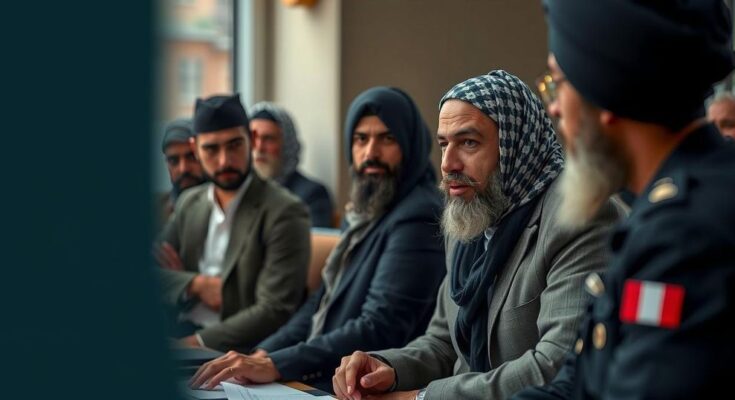Human Rights Watch urges France to support an international initiative aimed at holding the Taliban accountable for human rights abuses in Afghanistan, particularly those affecting women and girls. The organization stresses the urgent need for action as conditions worsen for Afghan women, highlighting failures from the UN and international governments to address ongoing abuses effectively. The call hints at a need for broad collaboration among nations and immediate measures to restore rights and dignity to Afghan women.
In a poignant call to action, Human Rights Watch has urged France to lend its support to a vital international initiative spearheaded by Germany and allied nations, aimed at holding the Taliban accountable for their egregious human rights violations in Afghanistan, particularly against women and girls. An open letter from the organization laments the lack of decisive measures from the United Nations Human Rights Council regarding the Taliban’s systematic assaults on the rights of half of Afghanistan’s population. The letter underscores France’s commitment to feminist diplomacy as crucial to its international policy. Yet it urges that this commitment manifest into tangible actions to combat what it describes as the world’s most severe women’s rights crisis. “The worst women’s rights crisis in the world is unfolding in Afghanistan, where the Taliban commit systematic violations against women and girls,” the letter boldly states. Reports from UN Women depict a grim reality for Afghan women under Taliban rule, shackled by unprecedented repression. Despite the urgent crisis, international responses have been lacking in both effectiveness and support for Afghan women. The letter emphasized the dire need for an international investigative mechanism to address these abuses. Heather Barr, from the Women’s Rights Division at Human Rights Watch, further articulated that nations stepping up to hold the Taliban accountable need to foster broader collaboration, reaching out to both Western and Islamic countries for a united front. Meanwhile, UN Women has issued grave warnings about the health and psychological repercussions for Afghan women and girls barred from education and public life, revealing how the Taliban’s aggressive policies undermine global human rights standards. “Women in Afghanistan are not only deprived of education but are also suffering serious health and psychological impacts,” highlighted Masouda Kohistani, a women’s rights activist based in Kabul. In response to this overwhelming crisis, Germany, alongside other nations, initiated an effort in September to draw accountability for rights violations against women under the Convention on the Elimination of All Forms of Discrimination Against Women (CEDAW), gaining traction from over 20 nations and the United Nations. The urgent need for stronger global action against the Taliban was emphasized by Canadian Special Representative David Sproule, who lamented the group’s disregard for international rights reform calls.
The call from Human Rights Watch comes against the backdrop of worsening human rights conditions for women in Afghanistan following the Taliban’s resurgence in power. With systematic violations occurring daily, Afghan women’s rights activists have continuously warned of a humanitarian crisis that affects education, health, and freedom of movement. The international community has struggled to respond effectively to these alarming conditions, leading to urgent calls for action from prominent organizations such as Human Rights Watch and UN Women.
The urgent plea from Human Rights Watch reflects a growing consensus that swift international action is needed to confront the Taliban’s human rights abuses, particularly against women. Calls for unity among nations, alongside a framework for accountability, echo the sentiments of activists and organizations battling for Afghan women’s rights. This crisis demands a robust response—not only to restore dignity but to uphold universal human rights standards, underscoring that the world is watching and waiting for decisive action.
Original Source: amu.tv



